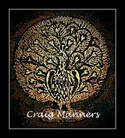|
Inviting Your Questions
Unanswered: Smoke, Mirrors and God by JOHN STONESTREET We all have questions about faith. What we need is a place where those questions are welcomed and answered with biblical truth. In his very first BreakPoint commentary, which aired September 2, 1991, Chuck Colson observed that “our culture has stopped asking the big questions about the meaning and purpose of life.” The same is true 25 years later, and at times it can even be true of the church. Feel-good sermons, songs, and activities cannot replace learning the grand narrative of God’s creation and redemption. Too many Christians are ill equipped to wrestle with life’s biggest questions, much less share their faith with others. Recently, I spoke with my friend and Colson Fellow Nancy Fitzgerald, who wrote and teaches the outstanding biblical worldview curriculum Anchorsaway to high school juniors and seniors. She shared a story with me that drives home the point. Anchorsaway hosted a picnic to celebrate the achievements of the students who had spent a semester studying worldview and apologetics. As the students went inside for their last class, parents met with Nancy for a time of sharing about what the students had learned. Nancy related that she spent much time answering students’ questions. Questions like: “How do you know Christianity is not a hoax? What difference does it make to me daily that Jesus died and rose again? Is there any hope for me?” When Nancy then asked the parents how many of them had similar questions, no one responded. In fact, no one moved. “It’s okay to have questions,” Nancy told them. “Honestly, how many of you have similar questions?” Slowly, the hands begin to rise. One mom said, “I didn’t know we could ask questions; I was taught not to.” Another said, “I didn’t know there were answers to such questions. I have thought about that stuff but never knew anyone who could answer them.” As a teacher myself, it saddens me to think that Christians don’t know that it’s perfectly okay to ask hard questions. In fact, it’s critical! What’s more, the church should be the best place to ask those questions. As Nancy told those parents, and I’m excited to tell you, Nancy’s written a new small group study aimed specifically at adults who have the same kinds of questions the teens studied in the Anchorsaway class. This new study is called “Unanswered: Smoke, Mirrors and God,” and provides a way for you to both ask and find biblical answers to the questions we have about God, Jesus, ourselves, and the big questions of life. It’s an excellent adult small group study with an accompanying discussion guide and DVD. Not only will it help you get some honest answers, but you’ll also learn how to be a better responder to those who have questions. It will give you confidence in knowing the truth of your faith. To not take people’s questions seriously is to not take them seriously. We risk leaving the impression that questioning is sinful or that the answers don’t really exist. Neither is true, and “Uanswered” is a perfect way to offer your friends and neighbors in your church and community a safe place to ask the big questions and receive honest answers. NEXT STEPS Inviting Your Questions: Unanswered: Smoke, Mirrors and God Get your copy of "Unanswered: Smoke, Mirrors and God"--a valuable resource for adults who have questions. And learn more about the Anchorsaway program and curriculum by clicking on the links below. Unanswered: Smoke, Mirrors and God: study series website Anchorsaway website LISTEN TO TODAY'S COMMENTARY SUBSCRIBE TO BREAKPOINT DAILY
0 Comments
Your comment will be posted after it is approved.
Leave a Reply. |
Craig MannersWhile much of what is written in this Blog may currently appear to be counter-cultural, given our post-truth culture, it is in no way counter-human beings. I am always for people no matter what they think, do, or may have done in their past. Where I put forward ideas or debate against certain ideology, behaviour, ideas, movements, politics, I remain very much on the side of the human beings even though I may be opposed to their worldview, behaviour and politics. Such opposition is generally out of concern for the ultimate consequences of such behaviour or ideas, especially for children. |
- Africa
- Reflections by Craig Manners
-
Articles by Craig Manners
- While We Wait by Craig Manners
- Written on our Hearts by Craig Manners
- Cure for Death by Craig Manners
- Perfect Justice, Perfect Mercy. Only God Could do This. By Craig Manners
- Authority By Craig Manners
- Creation and Providence by Craig Manners
- Forgiveness by Craig Manners
- All Things for Good by Craig Manners
- A Complete Education by Craig Manners
- Humans. Moral beings or not?
- Soviet Era Mass Conversion Therapy Mind Control Set to Control the West by Craig Manners
- On the Road to Adelong by Craig Manners >
- What is Christianity all about? >
- Note Pad
- To be Frank!
- A Cultural Revolution
- Wanted: Men who Understand the Times
- Grieved by the Grievance Virus
Contact Craig Manners
Copyright Craig Manners © 2016 to 2019
